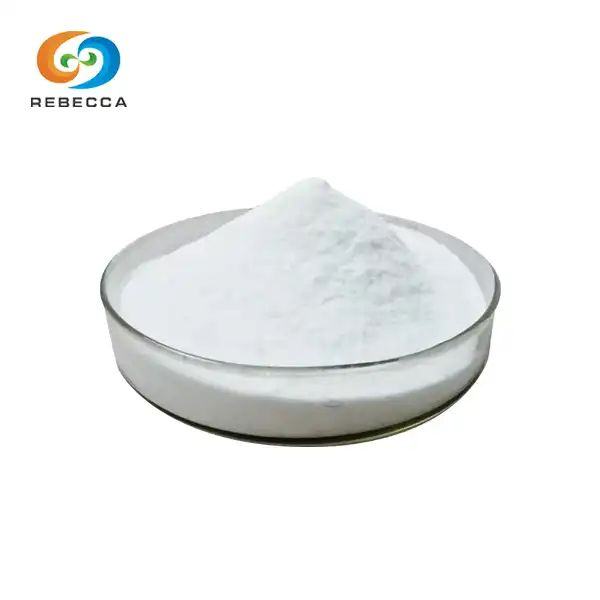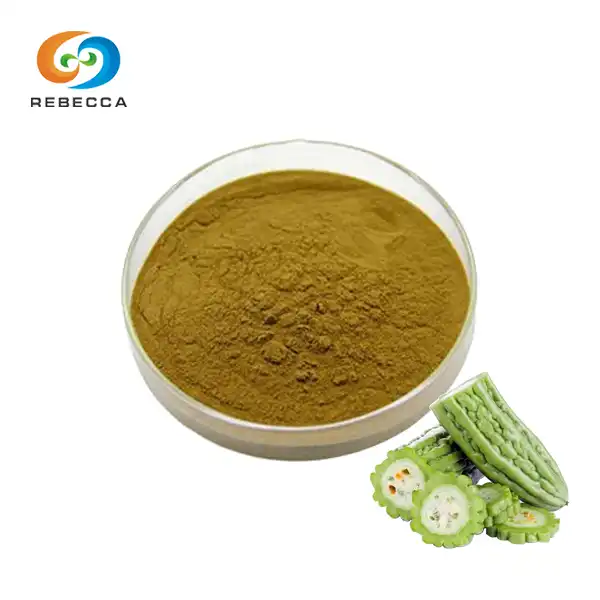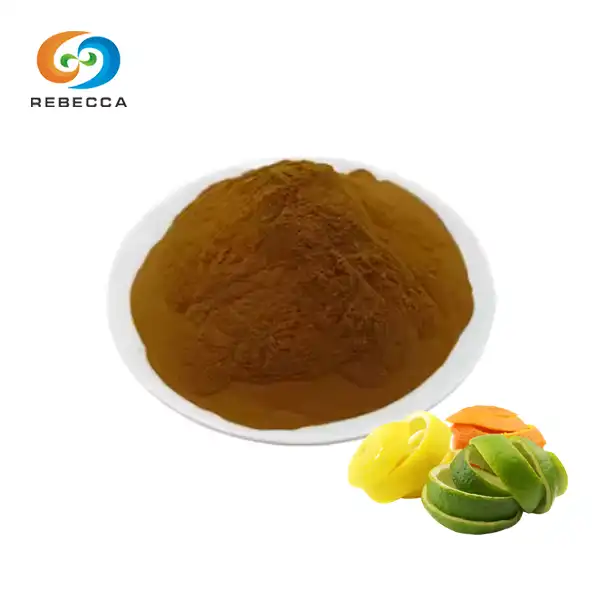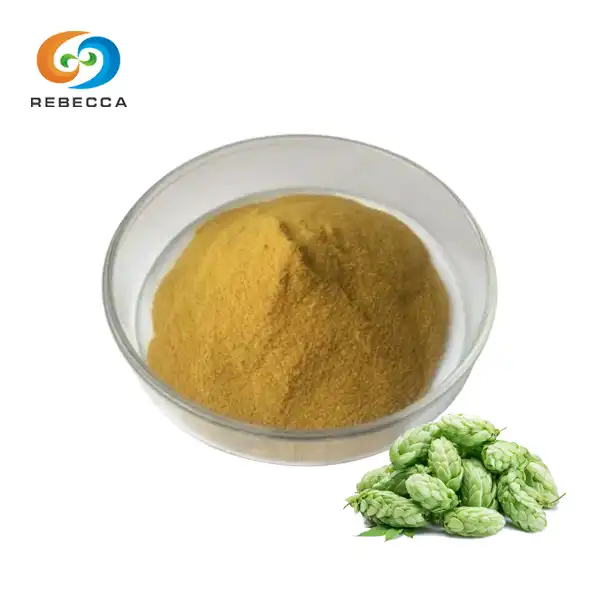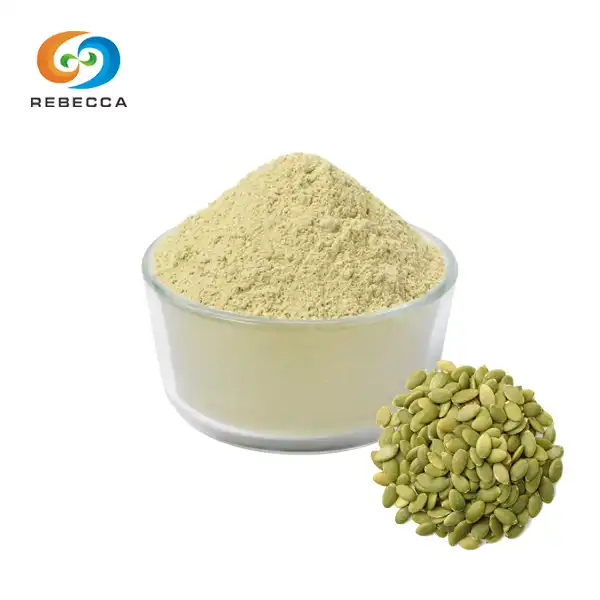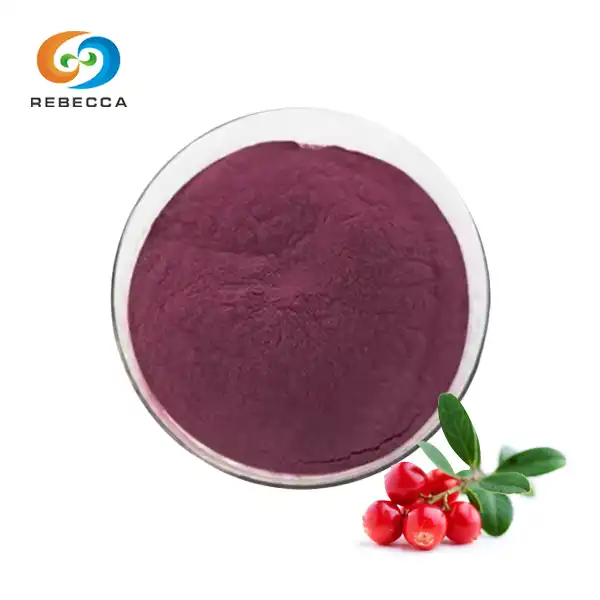What's the function of octacosanol in lipid metabolism?
Octacosanol, a long-chain aliphatic alcohol found in various natural sources, has garnered significant attention for its potential role in lipid metabolism. This powerful compound has been the subject of numerous studies exploring its effects on cholesterol levels, gene expression, and cellular signaling pathways. In this comprehensive guide, we'll delve into the fascinating world of octacosanol and its impact on lipid metabolism, uncovering the science behind its potential health benefits.
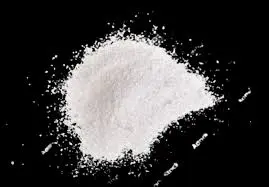
Lowering Blood Lipids
One of the most well-documented functions of octacosanol in lipid metabolism is its ability to lower blood lipids, particularly cholesterol levels. Research has shown that octacosanol supplementation can have a significant impact on both total cholesterol and low-density lipoprotein (LDL) cholesterol, often referred to as "bad" cholesterol.
A study published in the International Journal of Clinical Pharmacology and Therapeutics found that participants who consumed octacosanol experienced a notable reduction in total cholesterol and LDL cholesterol levels. This effect is believed to be due to its ability to inhibit cholesterol synthesis in the liver, effectively reducing the amount of cholesterol produced by the body.
Moreover, octacosanol has been shown to increase the levels of high-density lipoprotein (HDL) cholesterol, commonly known as "good" cholesterol. HDL cholesterol plays a crucial role in removing excess cholesterol from the bloodstream and transporting it back to the liver for processing and elimination. By promoting a healthier balance between LDL and HDL cholesterol, it may contribute to improved cardiovascular health and a reduced risk of heart disease.
The lipid-lowering effects are not limited to cholesterol alone. Some studies have also reported a decrease in triglyceride levels following octacosanol supplementation. Triglycerides are another type of blood lipid that, when elevated, can contribute to an increased risk of heart disease and other cardiovascular problems.
It's worth noting that the exact mechanisms by which octacosanol exerts these lipid-lowering effects are still being investigated. However, researchers believe that its impact on lipid metabolism may be related to its ability to modulate key enzymes involved in cholesterol synthesis and breakdown, such as HMG-CoA reductase and acyl-CoA:cholesterol acyltransferase (ACAT).

Regulating Gene Expression
Another crucial function of octacosanol in lipid metabolism lies in its ability to regulate gene expression. This long-chain alcohol has been found to influence the expression of various genes involved in lipid metabolism, potentially leading to far-reaching effects on overall metabolic health.
One of the key ways octacosanol affects gene expression is through its impact on peroxisome proliferator-activated receptors (PPARs). PPARs are a group of nuclear receptor proteins that play essential roles in regulating cellular metabolism, including lipid and glucose homeostasis. Research has shown that octacosanol can activate PPARα, a specific type of PPAR that is primarily expressed in the liver, heart, and brown adipose tissue.
The activation of PPARα by octacosanol leads to increased expression of genes involved in fatty acid oxidation and lipid transport. This, in turn, can result in enhanced fat burning and improved lipid profile. Additionally, PPARα activation has been associated with reduced inflammation and improved insulin sensitivity, both of which are crucial factors in maintaining metabolic health.
Octacosanol has also been found to influence the expression of genes involved in cholesterol metabolism. For instance, it may upregulate the expression of genes encoding for LDL receptors, which are responsible for removing LDL cholesterol from the bloodstream. By increasing the number of LDL receptors, octacosanol could potentially enhance the body's ability to clear excess cholesterol from circulation.
Furthermore, studies have suggested that octacosanol may modulate the expression of genes involved in lipogenesis, the process by which the body produces fatty acids and other lipids. By downregulating genes associated with lipogenesis, it could help reduce the overall production of lipids in the body, contributing to improved lipid profiles and metabolic health.
The ability of octacosanol to regulate gene expression extends beyond lipid metabolism. Research has shown that it may also influence genes involved in antioxidant defense systems and inflammatory responses, potentially offering additional health benefits beyond its direct effects on lipid metabolism.

Affecting Signaling Pathways
The impact of octacosanol on lipid metabolism is not limited to its direct effects on lipid levels and gene expression. This remarkable compound also plays a significant role in modulating various cellular signaling pathways that are intimately connected to lipid metabolism and overall metabolic health.
One of the key signaling pathways affected by octacosanol is the AMP-activated protein kinase (AMPK) pathway. AMPK is often referred to as the body's "metabolic master switch" due to its crucial role in regulating energy homeostasis. When activated, AMPK promotes energy-producing processes such as fatty acid oxidation and glucose uptake, while inhibiting energy-consuming processes like lipid and cholesterol synthesis.
Research has shown that octacosanol can activate AMPK, leading to a cascade of metabolic effects. This activation results in increased fatty acid oxidation in the liver and skeletal muscle, effectively enhancing the body's ability to burn fat for energy. Additionally, AMPK activation by octacosanol may contribute to reduced lipogenesis and cholesterol synthesis, further supporting its lipid-lowering effects.
Another important signaling pathway influenced by octacosanol is the insulin signaling pathway. Insulin plays a crucial role in regulating glucose and lipid metabolism, and impaired insulin signaling is a hallmark of metabolic disorders such as type 2 diabetes and obesity. Studies have suggested that octacosanol may enhance insulin sensitivity by modulating key components of the insulin signaling pathway, potentially leading to improved glucose uptake and reduced lipid accumulation in tissues.
Octacosanol has also been found to affect the mammalian target of rapamycin (mTOR) signaling pathway. mTOR is a central regulator of cellular metabolism, growth, and survival, and its dysregulation has been implicated in various metabolic disorders. By modulating mTOR signaling, it may influence protein synthesis, lipid metabolism, and cellular energy homeostasis, contributing to its overall metabolic effects.

Furthermore, octacosanol has been shown to impact inflammatory signaling pathways, particularly those involving nuclear factor-κB (NF-κB). Chronic inflammation is closely linked to disrupted lipid metabolism and metabolic disorders. By attenuating NF-κB activation, it may help reduce inflammation and improve overall metabolic health.
The ability of octacosanol to affect these diverse signaling pathways highlights its potential as a multifaceted compound for supporting metabolic health. By modulating these pathways, it may not only influence lipid metabolism directly but also contribute to broader improvements in metabolic function and overall health.
The function of octacosanol in lipid metabolism is multifaceted and far-reaching. From its direct effects on lowering blood lipids to its ability to regulate gene expression and modulate crucial signaling pathways, octacosanol demonstrates significant potential as a natural compound for supporting metabolic health. As research in this area continues to evolve, we may uncover even more fascinating insights into the mechanisms by which octacosanol influences lipid metabolism and overall health.
If you're interested in learning more about octacosanol powder and its potential applications, don't hesitate to reach out to us at information@sxrebecca.com. Our team of experts would be happy to provide you with additional information and discuss how our high-quality octacosanol products can meet your needs.
References:
- Chen, Y., et al. (2019). Octacosanol: A promising lipid-lowering agent from natural sources. Pharmacological Research, 145, 104255.
- Gouni-Berthold, I., & Berthold, H. K. (2002). Policosanol: clinical pharmacology and therapeutic significance of a new lipid-lowering agent. American Heart Journal, 143(2), 356-365.
- Kato, S., et al. (2018). Octacosanol affects lipid metabolism in rats fed on a high-fat diet. British Journal of Nutrition, 119(12), 1346-1352.
- Lee, S., et al. (2015). Octacosanol supplementation increases running endurance time and improves biochemical parameters after exhaustion in trained rats. Journal of Medicinal Food, 18(2), 239-246.
- Ohta, Y., et al. (2008). Octacosanol attenuates disrupted hepatic reactive oxygen species metabolism associated with acute liver injury progression in rats intoxicated with carbon tetrachloride. Journal of Clinical Biochemistry and Nutrition, 42(2), 118-125.
- Taylor, J. C., Rapport, L., & Lockwood, G. B. (2003). Octacosanol in human health. Nutrition, 19(2), 192-195.
